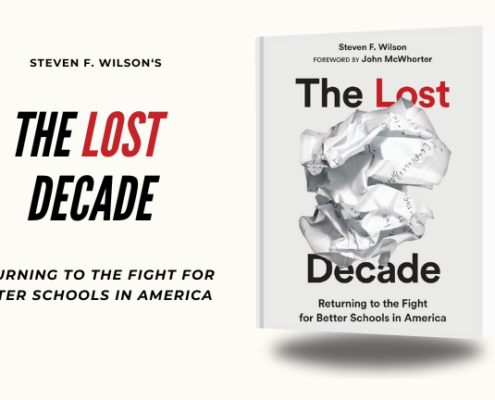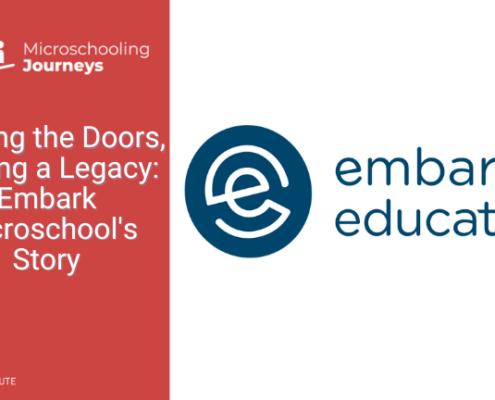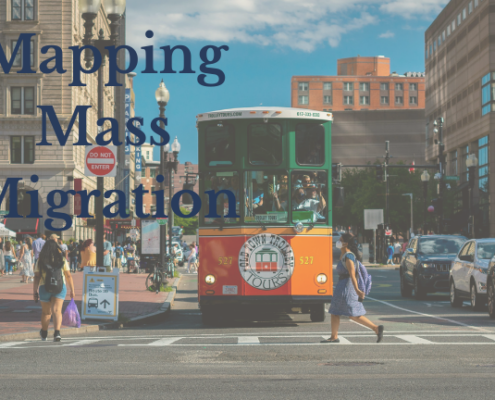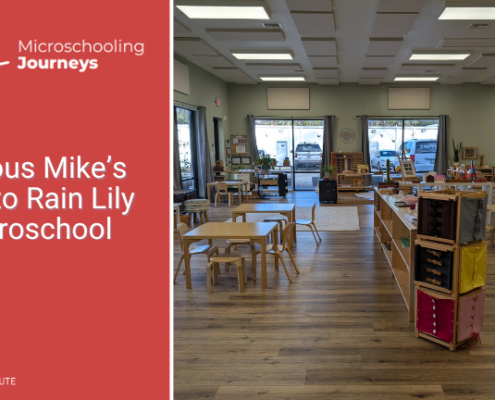
MBTAAnalysis: A look inside the MBTA
0 Comments
/
The MBTA shuttles over a million passengers a day around Greater…
 https://pioneerinstitute.org/wp-content/uploads/CloseupClock-1.jpg
739
1244
Mary Connaughton
https://pioneerinstitute.org/wp-content/uploads/logo_440x96.png
Mary Connaughton2017-02-20 12:34:192017-02-21 09:47:58The Clock is Ticking…….
https://pioneerinstitute.org/wp-content/uploads/CloseupClock-1.jpg
739
1244
Mary Connaughton
https://pioneerinstitute.org/wp-content/uploads/logo_440x96.png
Mary Connaughton2017-02-20 12:34:192017-02-21 09:47:58The Clock is Ticking…….
UK’s Dr. Paula Byrne on Jane Austen’s 250th Anniversary
In this episode of The Learning Curve, co-hosts Alisha Searcy and Helen Baxendale celebrate the 250th anniversary of Jane Austen’s birth with Dr. Paula Byrne, Lady Bate, a distinguished biographer and literary critic. Dr. Byrne explores the key influences that shaped Austen’s life, the major themes of her novels, and the enduring relevance of heroines like Elizabeth Bennet and Elinor Dashwood. She also shares insights from her books The Real Jane Austen and The Genius of Jane Austen, shedding light on Austen’s love of theater and the lasting appeal of her works in Hollywood.

We Have a Long Way to Go for Massachusetts Residents to Have the Government Transparency We Deserve
As Pioneer Institute observes Sunshine Week,?we are disappointed by the legislature’s attempts to deny what the vast majority of voters want: an audit of the legislature by our State Auditor. Trying to avoid an audit further exacerbates the loss of public trust. After all, what are we left to think? Do they have something to hide? That is not the government our founders intended; nor is it what 72 percent of Massachusetts voters wanted. This year, during Sunshine Week, we are entirely focused on the top three actions to bring sunlight to the state legislature. They are:

EdChoice’s Robert Enlow on School Choice
In this episode of The Learning Curve, co-hosts U-Arkansas Prof. Albert Cheng and Alisha Searcy interview Robert Enlow, president and CEO of EdChoice. Mr. Enlow discusses his decades of leadership in school choice advocacy, from his early work with the Milton and Rose Friedman Foundation to spearheading policy reforms nationwide.

Pioneer Institute Study Finds Outdated U.S. Immigration System Delays Creation of 150,000 Businesses and 500,000 Jobs
Global competitors seizing opportunities to attract top talent

Frontier Institute’s Trish Schreiber on School Choice & Charter Schools in Montana
In this episode of The Learning Curve, co-hosts U-Arkansas Prof. Albert Cheng and Alisha Searcy interview Trish Schreiber, senior fellow in education at the Frontier Institute in Montana. Schreiber shares her journey from Silicon Valley to Montana and her passion for expanding educational opportunities.

The Lost Decade Calls for Replacing “Social Justice Education” with Education Rich in Liberal Arts, includes a foreword by John McWhorter
Book finds that marginalized students suffer most from turn away from academics

The House Call – Cambridge Adopts a Zoning Ordinance Allowing 4 to 6-Story Residential Buildings Citywide
The March edition of The House Call covers recent zoning changes in Cambridge that allow 4 to 6-story buildings on every residential lot. It also summarizes reform recommendations from a state commission tasked with advising the Healey administration on how to ramp up housing production.

Closing the Doors, Leaving a Legacy: Embark Microschool’s Story
Microschools launch and close more easily than traditional schools—is that a feature or a bug? This week on Microschooling Journeys, Brian Hyosaka shares the story of Embark Micro Middle School in Denver, a tuition-free, philanthropy-backed microschool closing after six successful years. Rather than charge tuition or become a charter, they chose to "go out on top." Embark’s legacy includes inspiring hundreds of educators. Folks, this is where we leave our limited podcast series. Microschooling Journeys has come to an end, if you listened, thank you, please give me a shout, I’d love your feedback. This is Curious Mike signing off!

Study: Inclusionary Zoning Helps Some, but Can Jeopardize Broad-Based Affordability
Policies often force developers to raise market-rate prices to compensate for losses on affordable units

UK Oxford’s Robin Lane Fox on Homer & The Iliad
In this week’s episode of The Learning Curve, co-hosts Alisha Searcy and Dr. Helen Baxendale interview Robin Lane Fox, distinguished classicist and Emeritus Fellow at Oxford. Prof. Lane Fox offers profound insights into Homer’s Iliad and its enduring significance. He explores the epic’s historical and literary context, from its roots in oral tradition to its lasting influence on Western culture.

Director/Actor Samuel Lee Fudge on Marcus Garvey & Pan-Africanism
https://dts.podtrac.com/redirect.mp3/media.blubrry.com/3809857/api.spreaker.com/download/episode/64587551/thelearningcurve_samuelleefudge.mp3
In…

State Report Card on Telehealth Reform: Progress Slowed in 2024 Leaving Patients Without Access
Connecticut, Louisiana and Tennessee missed the mark; Colorado…

Wildflower’s 70+ Microschools, Eight Years Later: Did Matt’s Vision Become Reality?
This week on Microschool Journeys, Curious Mike sat down with Matt Kramer, founder and CEO of Wildflower Schools, a national network of teacher-led Montessori microschools. How does he take a teacher who dreams “Maybe I should have my own little school”- and make that a reality? And how does he take a noble vision - socio-economic diversity, loosely a third from each wealth class - and make the budget work, using ESAs, vouchers, charters, and other subsidies? Tune in for this fascinating conversation!

Pioneer Institute Study Says MA Housing Permitting Process Needs Systemic Reform
Highlights Bureaucratic licensing process and appeals as areas to fix

Cornell’s Margaret Washington on Sojourner Truth, Abolitionism, & Women’s Rights
In this week’s episode of The Learning Curve, co-hosts U-Arkansas Prof. Albert Cheng and Alisha Searcy interview Margaret Washington, the esteemed historian and author of Sojourner Truth’s America. Prof. Washington delves into Truth’s remarkable life, from her early years in slavery in New York to her transformation into a powerful abolitionist, women’s rights advocate, and religiously driven reformer. She explores Northern slavery, the Second Great Awakening, her famous “Ain’t I a Woman?” speech, and her Civil War-era activism. Prof. Washington also reflects on Truth’s enduring legacy as a symbol of justice, equality, and resilience in American history. In closing, Prof. Washington reads a passage from her book, Sojourner Truth’s America.

UK Oxford & ASU’s Sir Jonathan Bate on Shakespeare’s Romeo and Juliet & Love
In this special St. Valentine's Day episode of The Learning Curve, co-hosts U-Arkansas Prof. Albert Cheng and Alisha Searcy interview renowned Shakespeare scholar Professor Sir Jonathan Bate to discuss the timeless tragedy, Romeo and Juliet. Exploring its enduring greatness, Sir Jonathan delves into Shakespeare’s classical influences, particularly Ovid’s Metamorphoses, and how Elizabethan literature shaped the portrayal of lovers.

Mapping Mass Migration – New 2024 Census Estimates Show Surge in Population Growth, With Considerable Caveats
This week's edition of Mapping Mass Migration will cover 2024 state population estimates and components of change from the Census Bureau, how trends are impacting Massachusetts, and an analysis of how a methodological change significantly impacted their estimates for net international migration from 2022 to 2024 and what that means for the number and demographic backgrounds of immigrants captured in the data.

Curious Mike’s Visit to Rain Lily Microschool
In this episode of Microschooling Journeys, Curious Mike visits Rain Lily Microschool in Nassau County, Florida. He visits: Wow. Then he hears the two founders origin story. Kati is a veteran Montessori teacher frustrated with culture and teacher respect issues in her former school, dreaming of a place where all parents felt welcome. Tania trains in Cuba, and then with her husband makes the fraught journey to USA, and ends up working her way up the ladder. Like many, they have a dream of “their own” little school - but how?
Enter Wildflower Network. It’s a network for teacher-led microschools, and they help people just like Kati and Tania: with septic tanks, with website creation, with touchy legal issues, with building a sliding scale tuition model that can tap Florida’s public dollars. This episode is a little different stylistically: it’s Mike’s monologue. Tune in next time for an interview with Matt Kramer, CEO of Wildflower’s 70+ campuses, about expanding these innovative schools nationwide.

Steven Wilson on The Lost Decade: Returning to the Fight for Better Schools in America
In this episode of The Learning Curve, co-hosts U-Arkansas Prof. Albert Cheng and Alisha Searcy interview Steven Wilson, a senior fellow at Pioneer Institute and a leading voice in education reform. Mr. Wilson discusses his journey into K-12 education policy, reflecting on his early work with Gov. Bill Weld and the landmark 1993 Massachusetts Education Reform Act (MERA), which helped propel the state’s schools to national and international success. He explores the intersection of K-12 curricula with race- and class-based politics and discusses themes from his upcoming book, The Lost Decade.

Study Finds Bump in State Population Due to Changes in Census Bureau Methodology
BOSTON – State leaders cheered in January when the U.S. Census Bureau estimated that Massachusetts’ population grew by 69,000 in 2024, more than at any other time in 60 years. Unfortunately, a closer look reveals that the higher estimates are largely driven by a change in Census Bureau methodology designed to better capture the influx of humanitarian migrants.

The House Call – Accessory Dwelling Units are Officially Legal Statewide in Massachusetts
This issue of The House Call covers Massachusetts' recent legalization of accessory dwelling units, as well as a bill filed in the state legislature last month that would broadly prevent localities from enforcing certain housing-related regulations.

Amar Kumar, CEO of KaiPod: 70 Microschools and Growing
In episode four of Microschooling Journeys, Curious Mike interviews Amar Kumar, the founder and CEO of KaiPod, a network of 70 microschools across the country. They explore what makes KaiPod distinct—whether it’s culture, curriculum, or teacher hiring practices. Amar discusses how he measures and ensures the quality of each school. Next week, Mike heads to Florida to visit Rain Lily Microschool, part of the Wildflower network.

U-Pitt.’s Marcus Rediker on Amistad Slave Rebellion & Black History Month
In this episode of The Learning Curve, co-hosts U-Arkansas Prof. Albert Cheng and Alisha Searcy interview historian Marcus Rediker, Distinguished Professor of Atlantic History at the University of Pittsburgh and author of The Amistad Rebellion. Prof. Rediker explores the 1839 slave revolt aboard the schooner La Amistad. He recounts the leadership of Sengbe Pieh (Joseph Cinqué) and the wider history and human toll of the transatlantic slave trade.

All of the Above: Nick’s Year of Homeschool, Virtual High, Online College, and KaiPod Microschool
In this week's episode of Microschooling Journeys, Curious Mike chats with Nick, a 15-year-old homeschooler dual-enrolled at VLACS and Arizona State University online, pursuing a business degree. Nick shares his unconventional education path, why he left traditional school after kindergarten, and how KaiPod Microschool fits into his journey. Will he return next year? What are his future aspirations? Tune in to find out! Plus, stay tuned for next week’s episode with KaiPod CEO Amar Kumar.

Notre Dame Law Assoc. Dean Nicole Stelle Garnett on Catholic Schools & School Choice
In this episode of The Learning Curve, co-hosts U-Arkansas Prof. Albert Cheng and Alisha Searcy interview Nicole Stelle Garnett, Associate Dean and John P. Murphy Foundation Professor of Law at Notre Dame Law School, and a national expert in education law and school choice. Dean Garnett discusses the vital role Catholic education plays in fostering faith, community, and the pursuit of “the true, the good, and the beautiful.” She explores the challenges posed by the decline of Catholic schools in urban areas, as outlined in her book Lost Classroom, Lost Community: Catholic Schools' Importance in Urban America, and highlights policy solutions such as expanding educational choice options to support Catholic school families.

Pioneer Institute Study Compares MA Workforce Development System to Those in Peer States
(Boston, Mass) - As Massachusetts has significantly increased investment in a myriad of workforce training programs to better compete for talent, a new Pioneer Institute report examines the Massachusetts workforce development system to determine what operational changes would better maximize results, and it compares the system to those in peer states.

Alexandra Popoff on Vasily Grossman & Holocaust Remembrance
In this special Holocaust Remembrance Day episode of The Learning Curve, co-hosts U-Arkansas Prof. Albert Cheng and the Heritage Foundation's Jason Bedrick interview Alexandra Popoff, a former Moscow journalist and acclaimed biographer. Ms. Popoff delves into the life and legacy of Vasily Grossman, a 20th-century Jewish Soviet writer and journalist. She explores Grossman's transition from chemical engineering to writing, influenced by his Jewish heritage and the historical context of the time.

Navigating Personalized Learning: Meghan’s Role as a Guide at KaiPod Microschool
In the latest episode of the Microschooling Journeys podcast, Curious Mike interviews Meghan, a dynamic "Guide" at KaiPod Microschool in Nashua, NH. Meghan shares her transition from public school to microschool and how she creates a welcoming, warm environment for her 14 students with individually curated curriculums. Discover Meghan's unique approach to education and stay tuned for more exciting episodes featuring Nick, a 15-year-old KaiPod student, and KaiPod CEO Amar Kumar.

Pioneer Institute Study Calls for Reforms to Ensure that Pharmacy Benefit Manager Practices Benefit Patients, Healthcare Payers
Congress likely to take up PBM reform early this year; Pioneer Institute Calls for PBM’s to be more transparent

Mapping Mass Migration: New England State and County Population Change, 2020 to 2023
This week's edition of Mapping Mass Migration will cover state and county population change in Massachusetts and New England from 2020 to 2023, how population has shifted for major demographics during that period, and how population change in general fits into the broader picture of a state's economic wellbeing.
